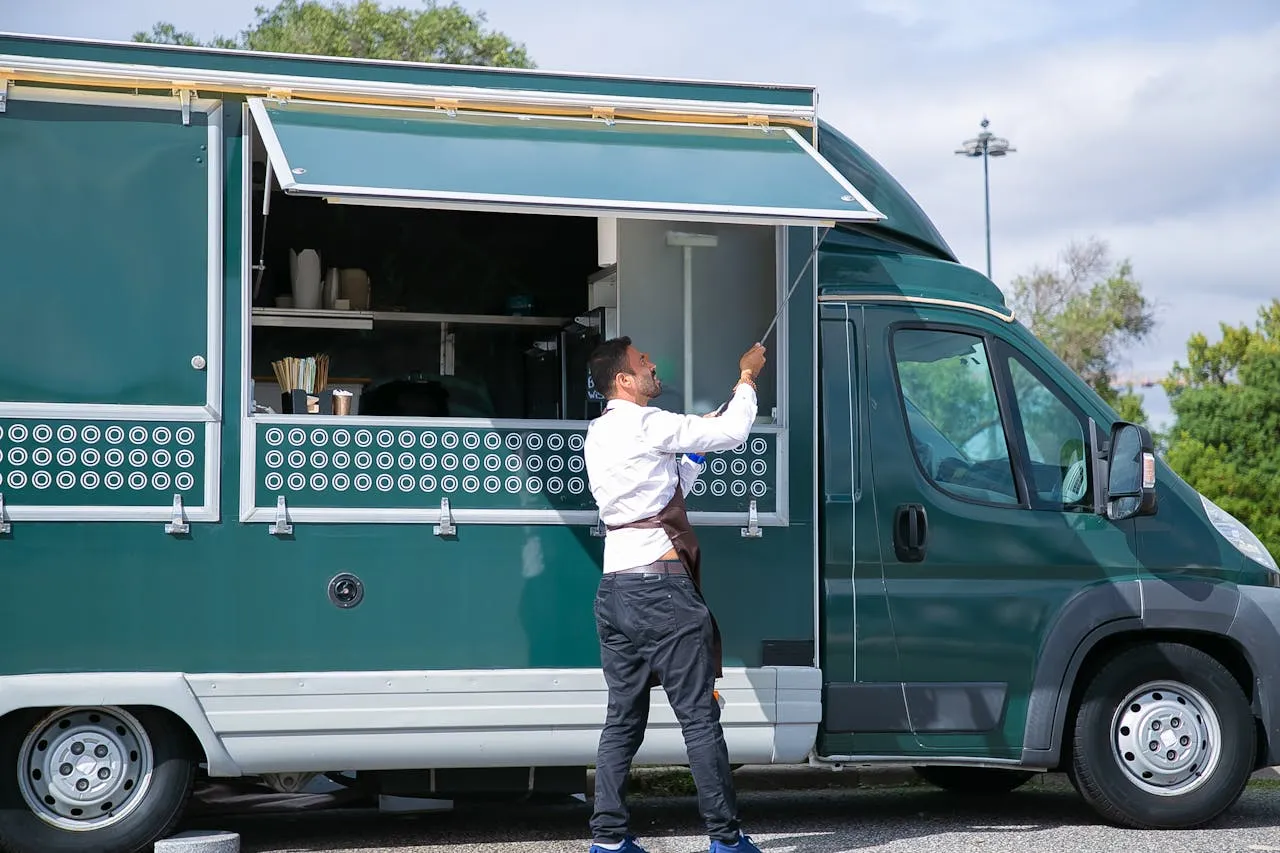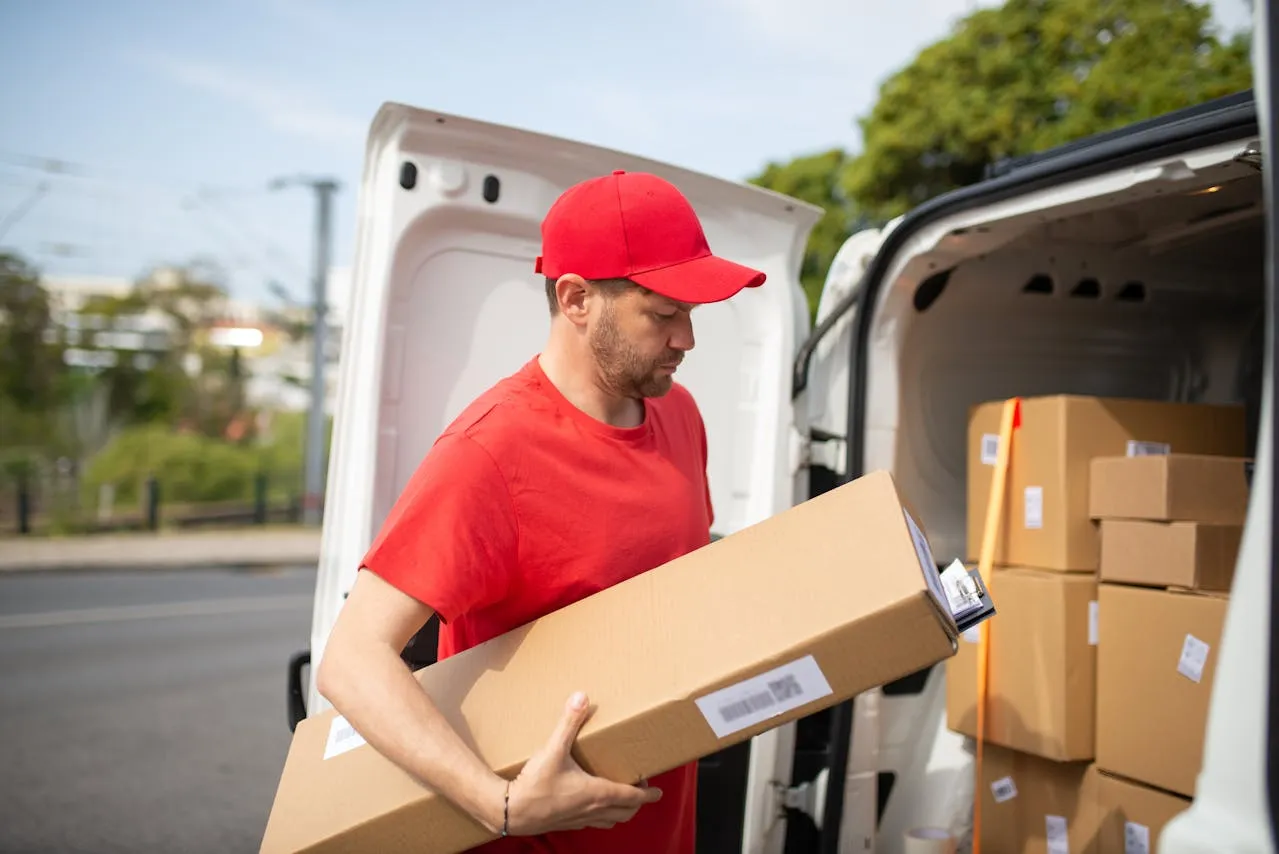- From utes and vans to heavy trucks and agricultural machinery, the right vehicle keeps operations smooth and efficient.
- Knowing what each type of vehicle is commonly used for helps you match your choice to your industry and tasks, whether it’s moving people, hauling goods, or managing a farm.
Every business has different needs when it comes to vehicles. Whether you’re hauling goods, moving people, running a farm, or providing mobile services, the right vehicle can make your operations a lot smoother.
This guide breaks down the main types of commercial vehicles used by Aussie SMEs—from light utes and vans to heavy trucks, specialised service vehicles, passenger fleets, and agricultural machinery.
Light commercial vehicles (LCVs)
Utes
Common for: Trades and construction, landscaping, agriculture, mining support services
With a roomy tray, strong towing capacity, and off-road ability, utes are the backbone of many businesses. If you’re constantly moving materials or equipment, a ute gives you the flexibility to handle both city runs and rugged job sites.
Vans
Common for: Delivery and courier services, e-commerce businesses, caterers
Perfect for businesses needing shelving setups or temperature control add-ons, vans offer enclosed cargo space, which means your stock or equipment stays safe and out of the weather.
Pickup trucks
Common for: Construction, rural transport, heavy equipment towing, farming, landscaping
If a ute isn't quite large enough for your business, a pickup truck might be a more suitable option. Designed to tow and carry heavy loads, these trucks offer great durability and payload capacity and are a top choice for anyone hauling machinery or bulk materials.
Minibuses
Common for: Tourism operators, community transport services, schools, aged care and disability transport providers
For people moving, minibuses are a top contender, delivering comfort and safety while keeping running costs manageable compared to full-sized coaches.
Medium to heavy commercial vehicles
Box trucks
Common for: Furniture removalists, retail goods delivery, appliance transport, freight and logistics companies
Sometimes referred to as pantechs, box trucks are enclosed and lockable, which makes them a perfect vehicle if you need to keep bulky or high-value goods protected during transit.
Flatbed trucks
Common for: Construction material transport, heavy machinery haulage, landscaping supply delivery
Exactly what it sounds like, a flatbed is an open, flat deck with no walls, commonly used to load and unload oversized or awkward items, like steel or timber.
Dump trucks
Common for: Mining, construction, civil engineering, landscaping and earthmoving contractors
Designed to carry loose loads like gravel, dirt, and sand, dump trucks come with a hydraulic lift that tips the load where it’s needed. They can save serious time and labour on large sites.
Refrigerated trucks
Common for: Food and beverage wholesalers, supermarkets, florists, pharmaceutical distribution
Also called “reefers,” refrigerated trucks keep goods at controlled temperatures, which is key if you work with perishables and need to maintain quality and meet compliance standards.
Tow trucks
Common for: Roadside assistance providers, vehicle salvage companies, automotive repair shops
Kitted out with winches or tilt trays, tow trucks are designed to recover or transport vehicles. A must for any business that needs to pick up breakdowns and accident-damaged cars.
Specialised commercial vehicles
Food trucks
Common for: Hospitality entrepreneurs, catering businesses, event vendors, mobile café operators
Food trucks are like a restaurant on wheels. They give you the flexibility to serve customers wherever they are—events, markets, busy urban spots, you name it. Plus, with lower setup costs than a café, they’re a go-to option for hospitality businesses looking to start up or expand.
Mobile service vehicles
Common for: Pet groomers, mobile mechanics, mobile medical services, locksmiths
Mobile service vehicles are custom-built vans or utes fitted with everything you need to deliver your service on the go, whether you fix cars roadside or provide mobile physio services. Instead of waiting for customers to come to you, you can go directly to them for greater reach and convenience.
Utility service vehicles
Common for: Electricians, plumbers, HVAC technicians, pest control services
These are your trade vehicles; basically like mobile workshops for tradies. They're usually equipped with racks, shelving, and storage systems to keep tools and parts organised.
Emergency service vehicles
Common for: Police, fire departments, ambulance services, SES units
Built for speed, safety, and reliability, emergency service vehicles carry specialised equipment and are fitted with comms systems to help emergency responders do their jobs under pressure.
Waste collection trucks
Common for: Waste management companies, local councils, recycling and green waste collection services
The name says it all here. Waste collection trucks are designed for one thing: efficient waste removal. Built with hydraulic arms, lifters, and compactors, they're essential for councils and contractors managing everything from household rubbish to recyclables.
Passenger and fleet vehicles
Taxis and rideshare vehicles
Common for: Independent drivers, rideshare companies, taxi operators
Taxis and rideshare vehicles are usually economical sedans or hybrids prized for their comfort, fuel efficiency, and durability. These cars clock serious mileage, so low running costs and reliability are especially important.
Luxury chauffeur cars
Common for: Corporate transport services, wedding and event hire, airport transfers
These are premium vehicles like high-end sedans or SUVs often used for executives, VIPs, and special occasions where first impressions matter. Not only to they deliver comfort and safety, but they also elevate your brand image and your customer experience.
Fleet sedans or SUVs
Common for: Sales teams, government departments, corporate hire services
Commonly used by businesses with multiple reps or field staff, these are standardised vehicles that keep your staff mobile and consistent with your branding, providing the perfect balance between affordability, fuel efficiency, and professionalism.
Tour buses and coaches
Common for: Travel and tourism companies, charter services, sports clubs
Designed to move larger groups in comfort, often for long distances, tour buses and coaches come with luggage storage, climate control, and sometimes entertainment systems.
Agricultural and construction vehicles
Tractors
Common for: Farming, viticulture, horticulture, landscaping
The ultimate farm machine, tractors are versatile and can be fitted with whatever attachments your agribusiness needs—for ploughing, hauling, planting, or mowing.
Harvesters
Common for: Grain farming, fruit and vegetable production, viticulture
Harvesters do the heavy lifting when it comes to crop collection, speeding up production, reducing labour, and improving efficiency for large-scale farming.
Excavators
Common for: Construction, demolition, mining, civil engineering, landscaping
Excavators are workhorses of the site, fitted with hydraulic arms and buckets that handle everything from digging to trenching to demolition. A must-have on big builds and civil works projects.
Loaders
Common for: Mining, construction, agriculture (moving bulk materials), waste management
Used to scoop and transport large volumes of material—think soil, sand, or gravel—loaders save time and effort on site, cutting down on the heavy lifting.
Cranes
Common for: Construction, heavy industry, shipping and ports, infrastructure projects
From tower cranes on city sites to mobile cranes for infrastructure, these vehicles are purpose-built for lifting and shifting heavy materials vertically and horizontally. Key for any large-scale project.
Get the business vehicle you need with Valiant
Whether you're after a ute, tractor, speciality vehicle, or luxury car, we can help you access the funds you need to get moving, literally.
Simply tell us a bit about your business goals and what you need a vehicle for. From there, we’ll match you with the right lenders out of a panel of 90+ bank and non-bank partners. Once you approve your quote, we take care of your business loan approval so you can get the funds you need in as little as 24 hours. Simple, fast, and hassle-free.
{{first-banner}}



